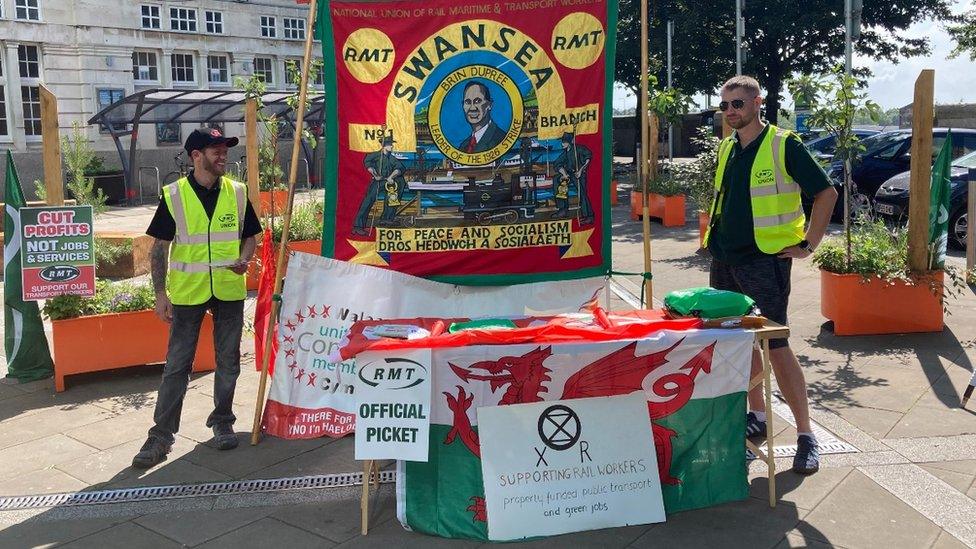Train strikes: Avoid travel warning as Wales' services halt
- Published

Rail workers from another union, RMT, picketing at Cardiff station on Wednesday
Rail passengers have another day of major disruption with a reduced train service in Wales from Saturday into Sunday morning.
Members of the drivers union Aslef at seven train operators walked out for 24 hours over pay.
It follows strikes over pay by 40,000 UK railway workers with the RMT union on Wednesday.
Transport for Wales (TfW) said the strike could result in "short-notice cancellations and changes".
It urged people to "only to travel by rail if necessary" because of reduced Great Western Railway service between Swansea and Newport.
TfW also said its services between Shrewsbury and Birmingham are expected to be very busy because of the Commonwealth Games and no trains being operated by West Midlands Railway.
The Rail Delivery Group (RDG) accused the union of timing the strike to coincide with the Commonwealth Games in Birmingham and the start of the new season for most English football league clubs.
In the Championship, Cardiff City started their season at home to Norwich, while Swansea City supporters travelled to Rotherham. In League Two, Newport County visited Sutton United.
"We're really disappointed that the Aslef leadership has decided to impose yet more uncertainty and disruption for passengers and businesses in a week which has already seen a strike by the RMT," said RDG chairman Steve Montgomery.
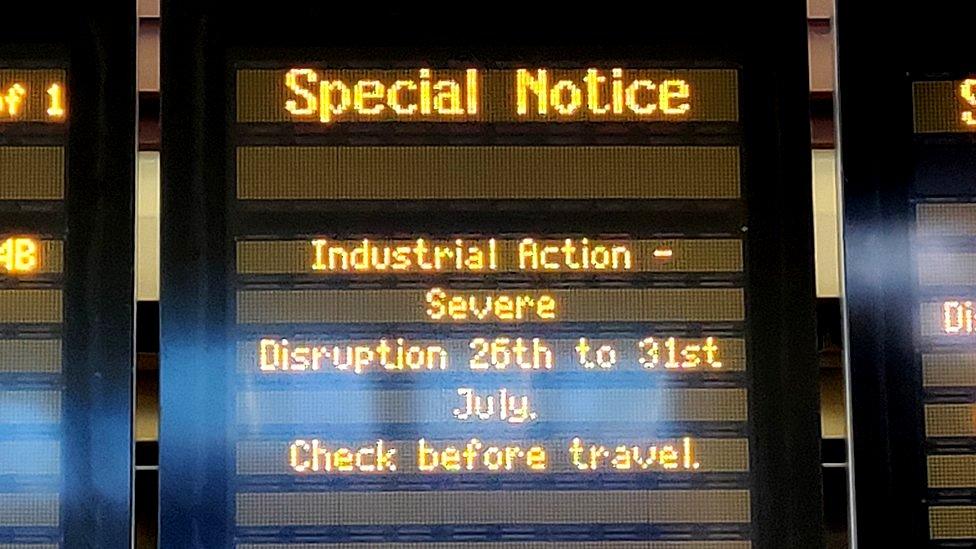
The RMT strike caused severe disruption of rail services across Wales on Wednesday
"Millions of passengers will have their weekend plans disrupted," Mr Montgomery said, "particularly those who are working, or going to the Commonwealth Games or the first football match of the season."
It said passengers who are unable to travel can use their tickets up to and including 2 August.
'Meaningful talks' invitation
Mr Montgomery issued an open invitation to Aslef's leaders to meet with him to hold "meaningful talks" to resolve the dispute.
"They should call off [the strike] and talk to us instead," he said.
Further strikes are planned next month by Aslef and the RMT in the deadlocked row over pay, jobs and conditions.
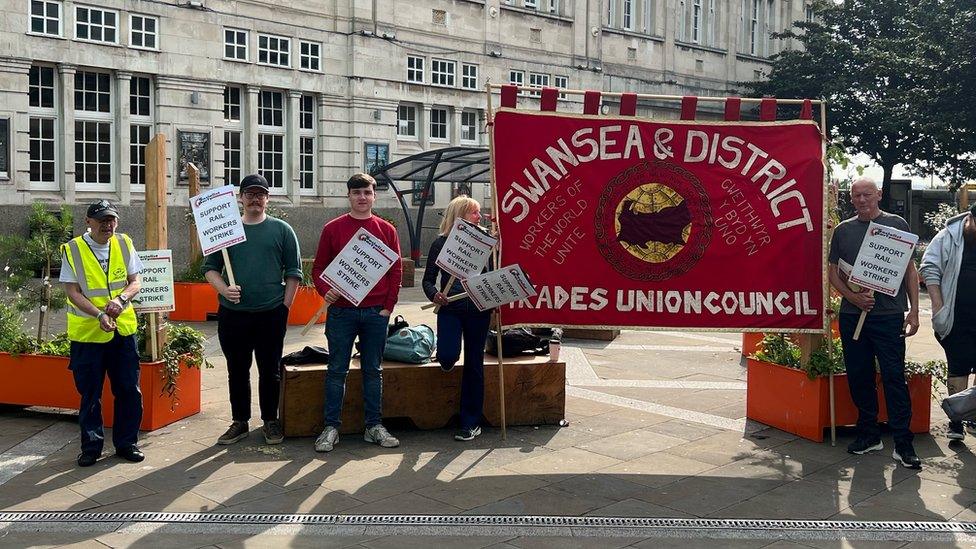
Rail workers formed a picket line outside Swansea station on Wednesday
"Strikes are always the last resort," said Mick Whelan, general secretary of Aslef.
"We don't want to inconvenience passengers... and we don't want to lose money by going on strike," Mr Whelan said. "But we've been forced into this position by the companies, who say they have been driven to this by the Tory government."
He said many of his members have not had a pay rise since 2019, which means a real-terms pay cut for drivers.
"We want an increase in line with the cost of living, we want to be able to buy, in 2022, what we could buy in 2021," he said. "It's not unreasonable to ask your employer to make sure you're not worse off for three years in a row."
Mr Whelan also claimed "profiteering" by train companies over the last three years with what he called "handsome profits, dividends for shareholders, and big salaries for managers".

Passengers at Cardiff Central train station have been warned to expect delays
Anthony Smith, chief executive of watchdog Transport Focus, said: "Passengers will be frustrated that, again, their plans are being disrupted.
"It is crucial that talks continue to find a solution that avoids passengers being continually dragged into this industrial dispute.
"Information will be key throughout the disruption. Train companies should keep looking at the specific areas for improvement we identified from the June strikes about refunds, compensation and clear information.
"We will again monitor the impact on passengers and on those who cannot travel."
- Published15 July 2022
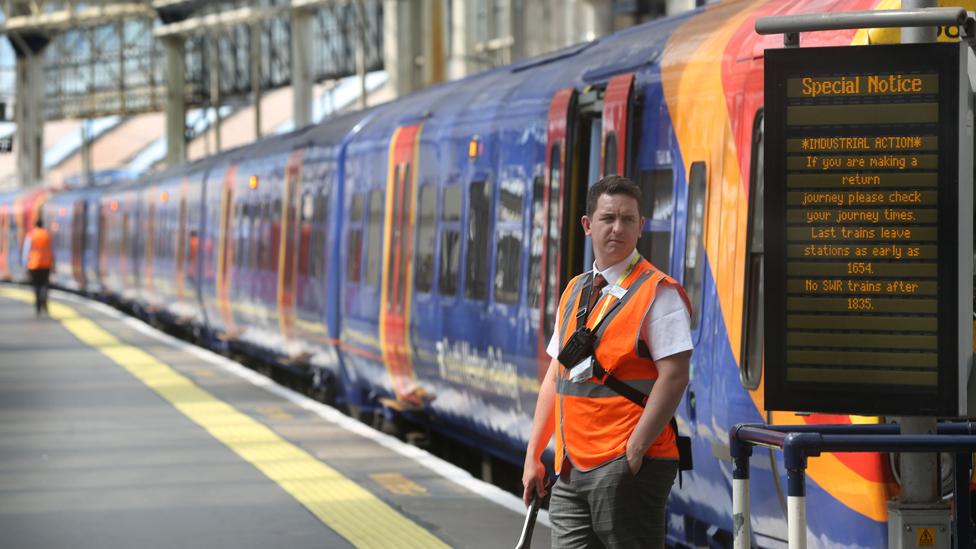
- Published27 July 2022

- Published20 July 2022
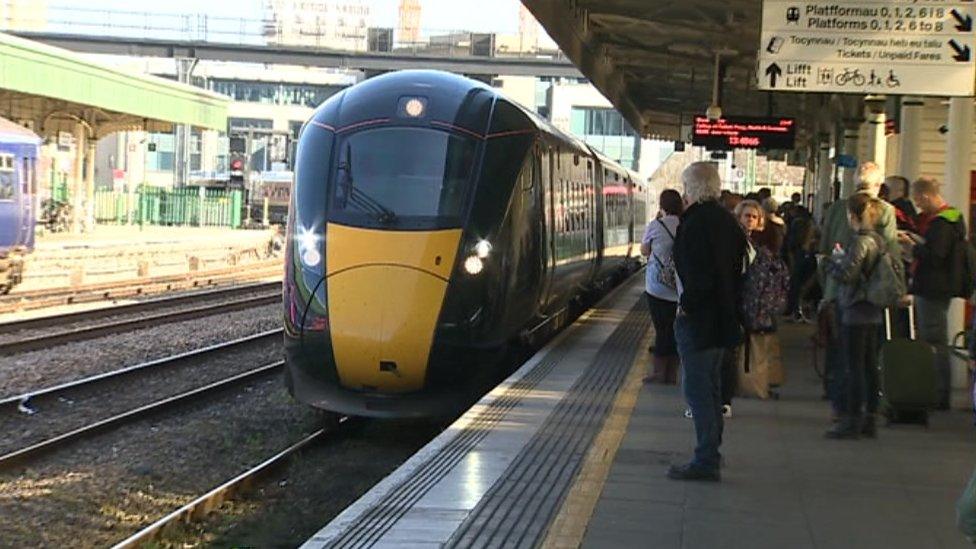
- Published21 June 2022
